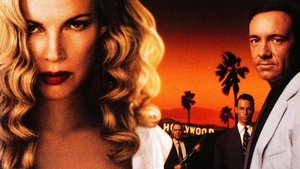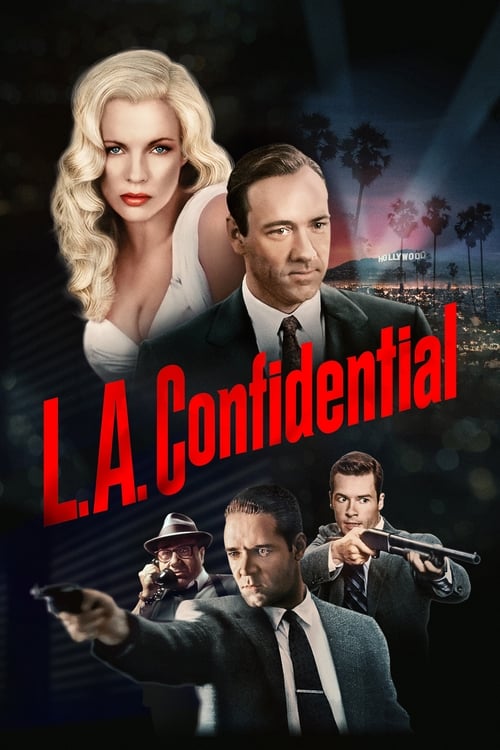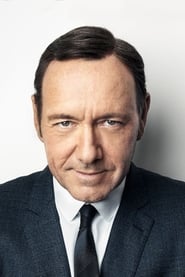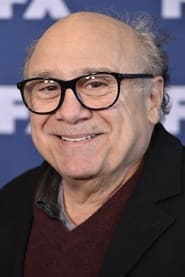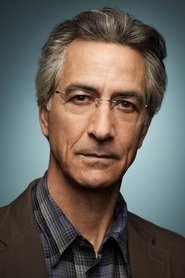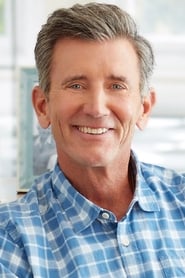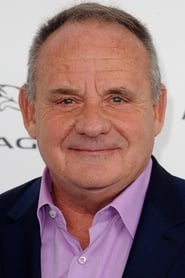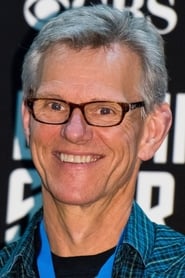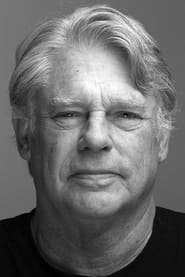Cast
View AllGuy Pearce
as Edmund 'Ed' Exley
Russell Crowe
as Wendell 'Bud' White
Kevin Spacey
as Jack Vincennes
Kim Basinger
as Lynn Bracken
Danny DeVito
as Sid Hudgens
James Cromwell
as Dudley Smith
David Strathairn
as Pierce Patchett
Ron Rifkin
as D.A. Ellis Loew
Matt McCoy
as 'Badge of Honor' Star Brett Chase
Paul Guilfoyle
as Mickey Cohen
Paolo Seganti
as Johnny Stompanato
Elisabeth Granli
as Mickey Cohen's Mambo Partner
Sandra Taylor
as Mickey Cohen's Mambo Partner
Steve Rankin
as Officer Arresting Mickey Cohen
Graham Beckel
as Dick Stensland
Crew
Director
- Curtis Hanson
Producer
- Michael G. Nathanson
- Arnon Milchan
- Curtis Hanson
Reviews
John Chard
City of Angels? More Like City of Demons!
Curtis Hanson directs and co-adapts the screenplay with Brian Helgeland from legendary pulp novelist James Ellroy's novel. It stars Kevin Spacey, Russell Crowe, Guy Pearce, James Cromwell, Kim Basinger, Danny DeVito and David Strathairn. Music is by Jerry Goldsmith and cinematography by Dante Spinotti.
It's 1950s Los Angeles and three cops of very different morals and stature are about to be entwined in crime and corruption...
I admire you as a policeman, particularly your adherence to violence as a necessary adjunct to the job.
Tremendous film making. Hanson takes Ellroy's labyrinthine story and pumps it with period authenticity and seamless direction, the latter of which sees him garner superlative performances from the cast. This is the side of Los Angeles nobody wants to talk about, it's awash with corpses, hookers, seedy set-ups, violence, drugs, racism and corruption a go-go. And that's just involving the politicians, the press and the coppers!
Rollo Tomasi.
The absence of genuine heroes on show still further keeps "The City of Angels" covered in dark clouds, where even as the plot twists and turns, as the mysteries unravel and brutality unfurls, the final destination of the principal characters is never clear, thus there's a continuing edge of seat pulse beat within the pic. It's also sexy and dangerous, the dialogue sharper than a serpent's tooth, and while the ending is a little too cosy as opposed to original noir wave conventions, this is pure noir in all but black and white photography.
It won only two Academy Awards, Basinger for Best Actress in a Supporting Role and for Hanson and Hegeland for Best Writing - Screenplay Based on Material Previously Produced or Published. Frankly it should have won a dozen or so for it's not just one of the best films of the 1990s, but also one of the best Neo-Noirs ever produced. 10/10
Aug 7, 2016
CinemaSerf
After the seemingly indiscriminate slaughter of the folks at a diner, it's the ambitious "Exley" (Guy Pearce) who suggests to his bosses that it's time for the LAPD to get it's act together and root out the corruption endemic within the force. To that end, he is promoted by "Capt. Smith" (James Cornwall) and sets about trying to assert a bit more of the rule of law rather than the rule of vengeance - that'd be the "White" (Russell Crowe) method, or the more venal and sleazy fashion of "Vincennes" (Kevin Spacey). Needless to say, nobody takes kindly to this new pure as the driven snow approach, but gradually "Exley" starts to make a bit of headway into the world of organised crime, and to realise just how involved the police are in covering up crimes from fraud to murder. He's also aware that someone is pulling his strings, so some sort of rapport with one of his suspicions colleagues is going to have to be forged if he is to stay alive! Each of these characters get their moment in the sun and that allows us to meet the unscrupulous red-top publisher "Hudgens" (an energetic Danny DeVito) and the sophisticated call-girl "Lynn" (Kim Basinger) who is quite often pretending to be Veronica Lake! I think my only problem with this film was that I reckoned on who was doing what really early on, so the jeopardy was a little bit compromised. That said, though, it's one of Crowe's more natural performances and Pearce shows us he can deliver gritty and bruising parts well too. I could have been doing with a little more of Basinger's quite intriguing character, just to break up the relentlessness of the story a bit more, but it's a solid adaptation of James Ellroy's uncompromising book that Curtis Hanson presents and it doesn't hang about.
Apr 22, 2024
Thematic Analysis
As a dramatic work, L.A. Confidential examines complex human relationships and emotional struggles against the backdrop of a period setting that reflects societal issues of its time. The character development particularly stands out, offering viewers a chance to reflect on their own life journeys.
Director Curtis Hanson brings their distinctive visual style to this film, continuing their exploration of themes seen in their previous works while adding new elements. Their approach to character development and emotional depth creates a viewing experience that rewards close attention.
Released in 1997, the film exists within a cultural context that now offers viewers historical perspective on the social issues of that era. Its critical acclaim reflects its artistic achievements and its place in cinema history.
Did You Know?
- The production of L.A. Confidential took approximately 23 months from pre-production to final cut.
- With a budget of $35.0 million, the film proved to be a financial success, earning back its investment and more.
- The final cut of the film runs for 138 minutes, though the director's initial assembly was reportedly 179 minutes long.
- The film contains approximately 2211 individual shots.
- The director insisted on using practical effects whenever possible, reserving CGI for only the most necessary scenes.
- Several scenes were filmed in multiple locations to capture the perfect setting.
Historical Context
- In 1997, when this film was released:
- Digital technology was transforming the entertainment industry.
- The internet was beginning to transform communication and information access.
- Independent cinema was growing in influence, challenging the dominance of major studios.
How This Film Stands Out
While L.A. Confidential shares thematic elements with other films in its genre, it distinguishes itself through its unique approach to storytelling, visual style, and character development.
Unlike Baian the Assassin, which focuses more on action than character development, L.A. Confidential offers a fresh perspective through its innovative visual language and narrative structure.
While films like Tomorrow's Dining Table and Ladies in Lavender explore similar territory, L.A. Confidential stands apart through its distinctive directorial vision and pacing.
This film's unique contribution to cinema lies in its thoughtful balance of entertainment value and thematic depth, making it a valuable addition to its genre.
Details
- Release Date: September 19, 1997
- Runtime: 2h 18m
- Budget: $35,000,000
- Revenue: $126,216,940
Where to Watch

